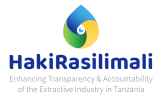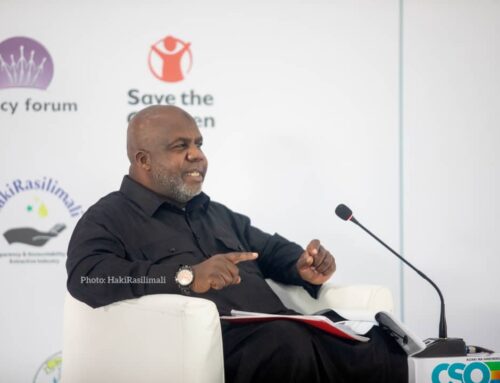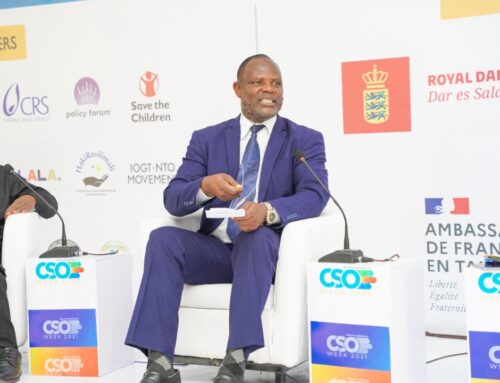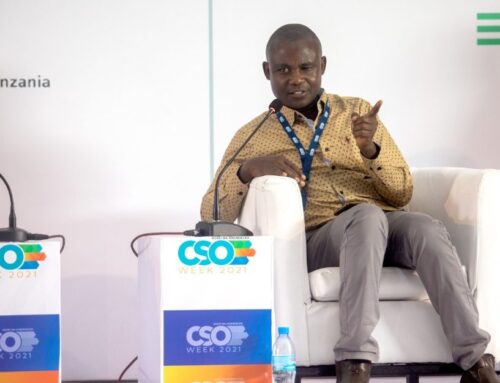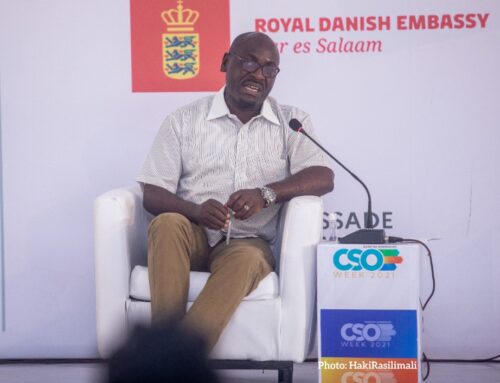Stakeholders call for a thorough and participatory review of the mineral policy of 2009, the Mining Act of 2010 (as amended from time to time), and other laws governing the mining sector. The review should aim at identifying gaps that limit Tanzania from obtaining optimal benefits from the growing critical minerals investments.
Furthermore, full implementation of the TEITA Act of 2015 (as amended in 2021) is required not only to increase public scrutiny but also public confidence. In this matter, the new arrangements entered into between GoT and the Companies need to be disclosed to allow public scrutiny, raise awareness of the citizens, and allow the public to determine whether the arrangements contain any unconscionable terms thereinto. Transparency is also a good strategy for managing public expectations.
This was on May 31, 2023, when HakiRasilimali held a multistakeholder dialogue dubbed “Hoja Yako Mezani” with a wide range of experts as panelists and stakeholders. The center of discussion was how Tanzania can leverage the growing demand for critical minerals to scale up its social economic development.
Global trends in the transition to low-carbon energy are expected to be mineral intensive hence increasing the demand for mineral and metal resources. The global net zero carbon race poses development challenges and opportunities to resource-rich countries like Tanzania.
“Tanzania has significant deposits of critical minerals such as nickel, copper, graphite, lithium, rare earth element, helium, uranium, cobalt, etc. Now, the government has prepared the critical minerals list, awaiting approval. The survey was conducted to inform the preparation to inform minerals that support the industrialization agenda in Tanzania, security, and supply risk” says Mr. Nyambita Ibrahim, a geologist from the Geological Survey of Tanzania.
Moreover, stakeholders argue for the government of Tanzania to capacitate the Geological Survey of Tanzania (GST) both technically and financially to reduce geological risk.
Notably, stakeholders acknowledge and applaud esteemed the Government of Tanzania’s (GoT) commitment to developing critical minerals national strategy to capture optimal benefits from the growing demand for the same. With equal weight, there is a need to review some of the provisions related to taxation and transparency to attract more investments and reap more benefits.
“Normally, the incentives to develop abundant mining reserves weaken environmental protection. Hence, a review of all mining license awarding processes is necessary to protect the environment. There is a need for the government to have close coordination as opposed to the current practice”. Says Mr. Silas Olang, energy transition Advisor.
On his side, Mr. Gerald Mturi, General Manager for Adavale Resources Tanzania Limited says “The value-added tax and refunding mechanisms for exploration companies are not friendly. For example, exploration companies are not VAT registered by Tanzania Revenue Authority hence all VAT incurred on procurement of goods and services are taxable (VAT) and not refunded unlikely mining companies where their VAT is refunded (through offsetting the VAT input and out difference)” hence a legal/policy review is necessary to ensure a fair play. He added that the exploration companies should be registered for Zero-rated VAT to allow them to reclaim VAT paid on the costs of procurements.
So, reviewing Tanzania’s mining policy, laws, and legislation by various stakeholders, including lawyers, economists, mining experts, and miners, may attract investment by allowing people to know the benefits of a particular area before investing and ensuring that the producers benefit. The environment is protected while the world also receives minerals.
